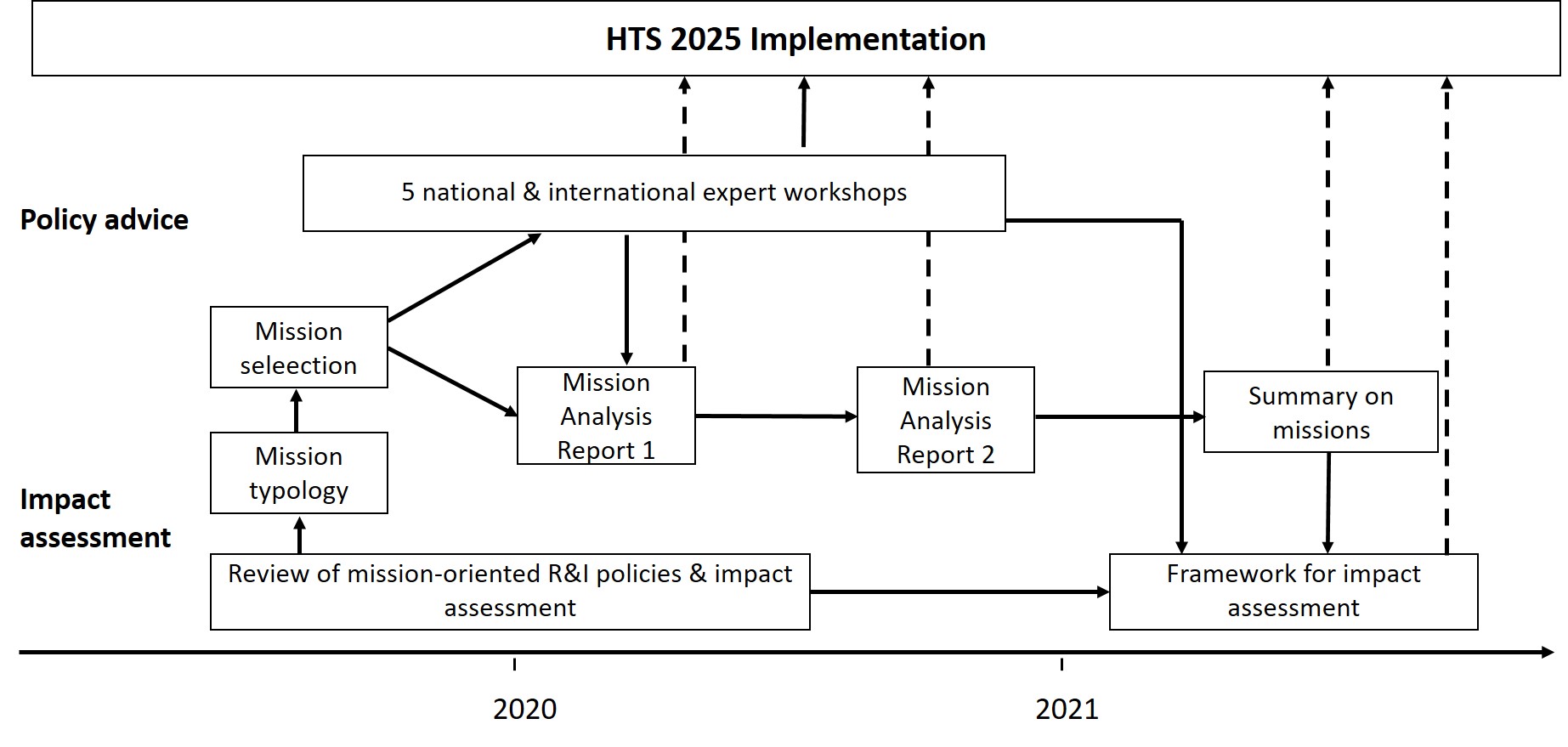High-Tech Strategy 2025 – Scientific support of missions and performance measurement in the context of accompanying the HighTech Forum
The project aims to support the implementation of the High-Tech Strategy (HTS) 2025, which directs German research and innovation policy more strongly towards addressing the Grand Challenges, the major societal challenges of our time. On the one hand, the project supports the implementation of the new mission-oriented policy of the High-Tech Strategy 2025, which is very complex due to its compre-hensiveness, through evidence-based scientific policy consultation and supports learning processes in the governance of these missions. On the other hand, it will develop an innovative concept to measure the effectiveness of this mission-oriented policy. The project is integrated in the activities supporting the High-Tech Forum (the high-level advisory body accompanying the HTS 2025).
